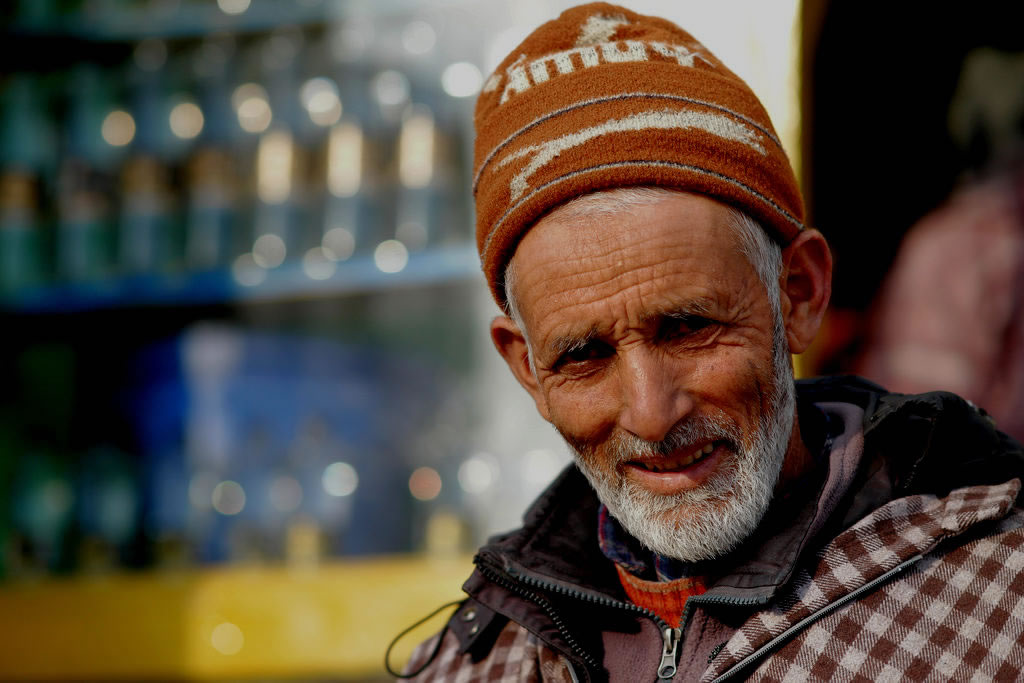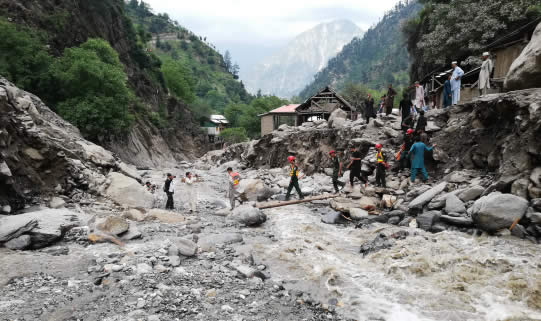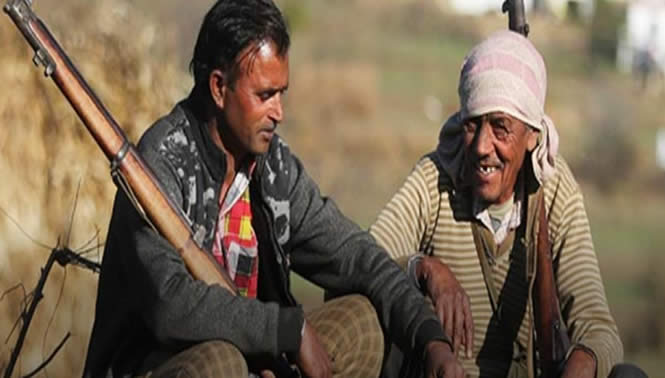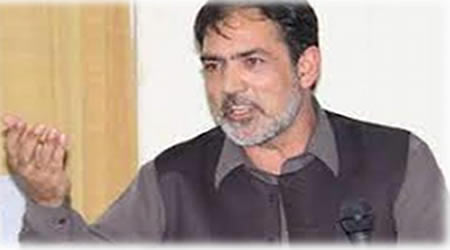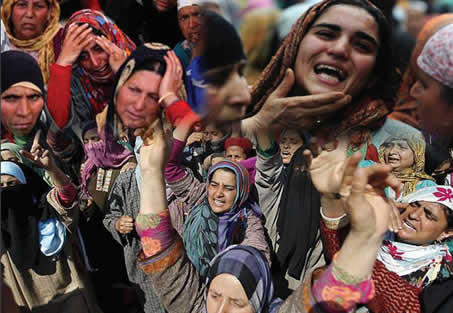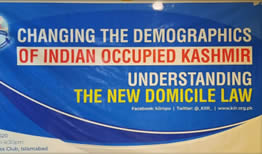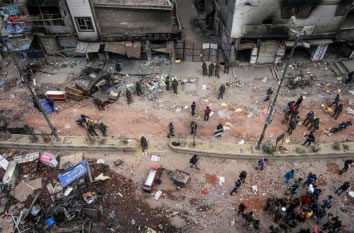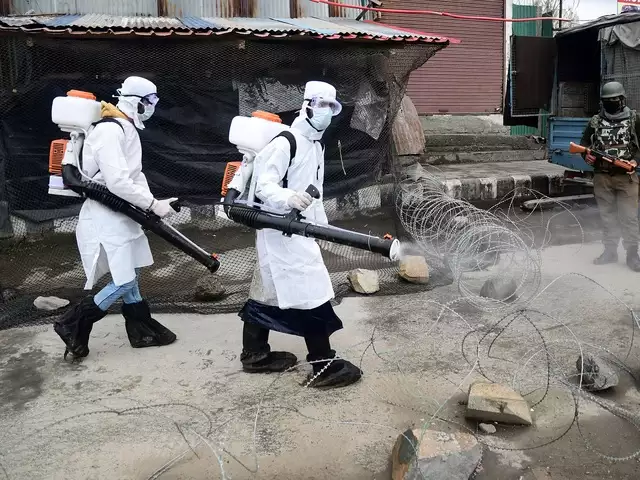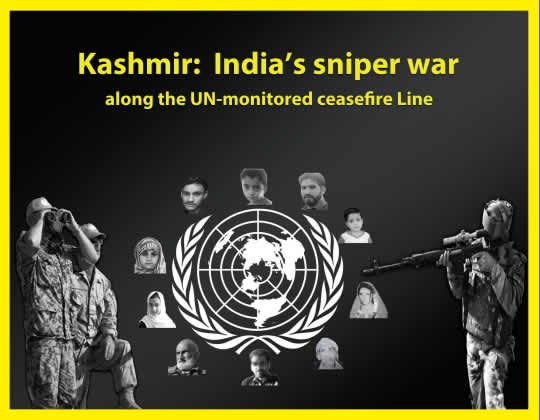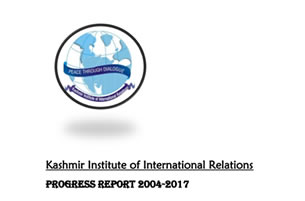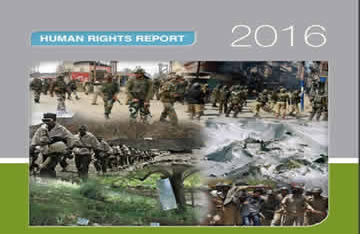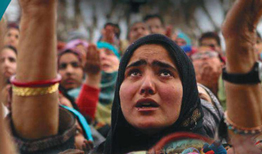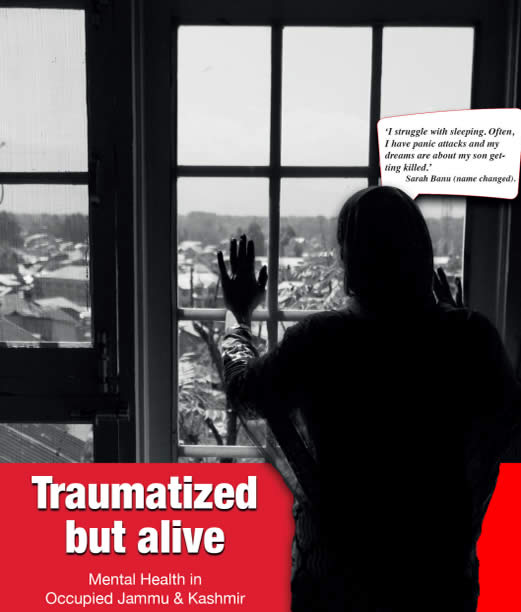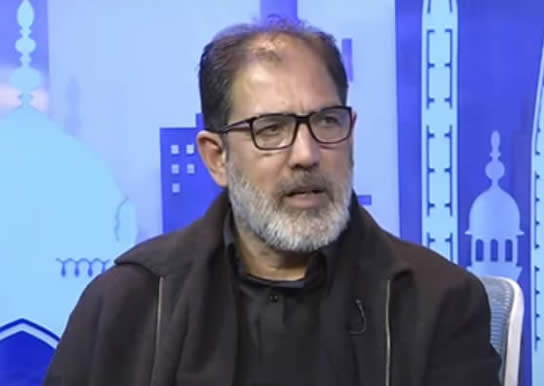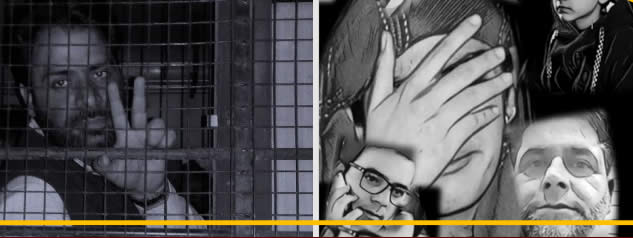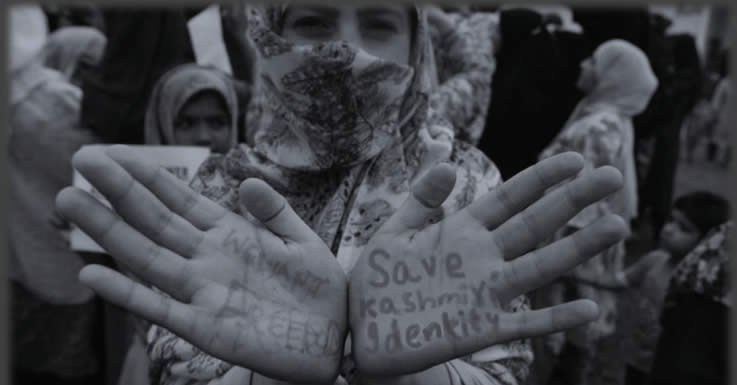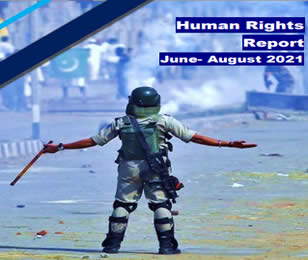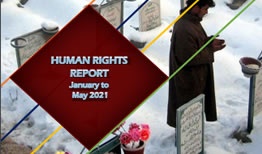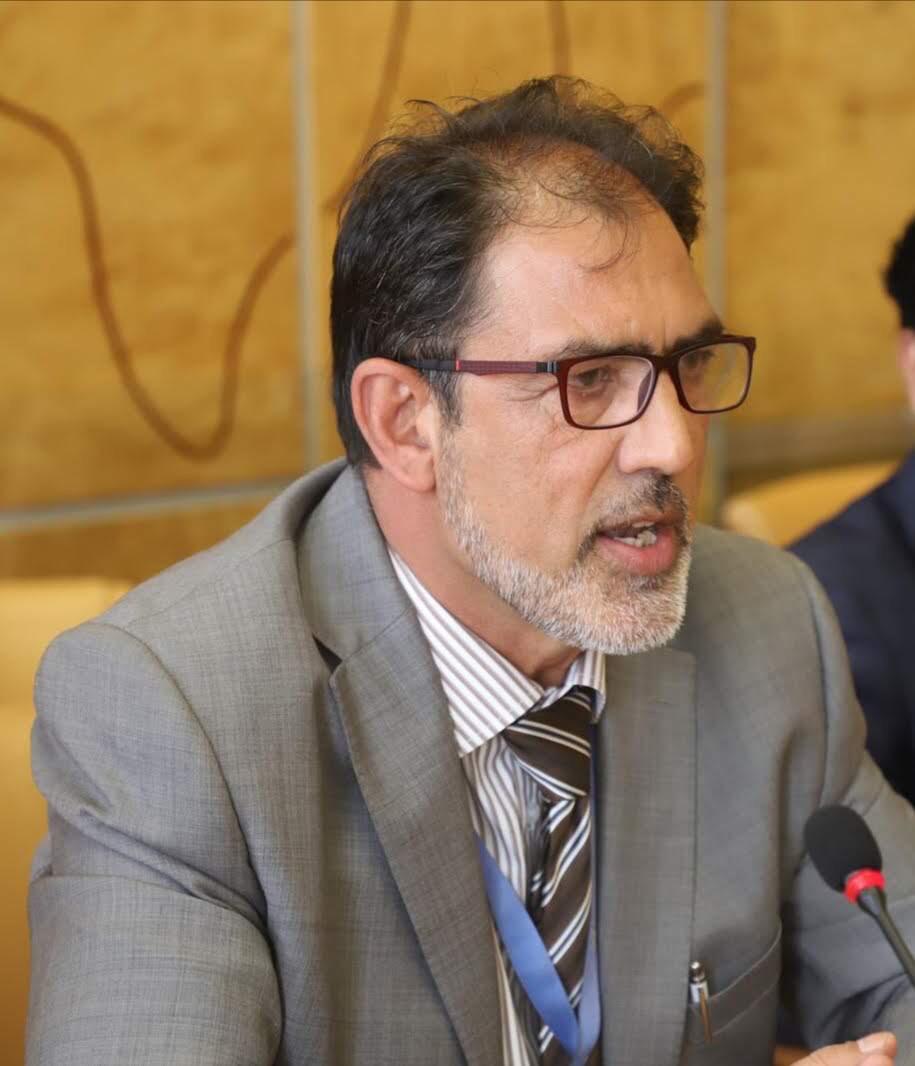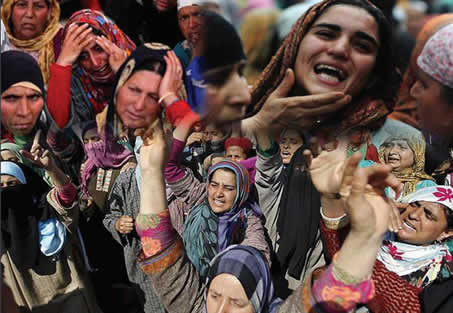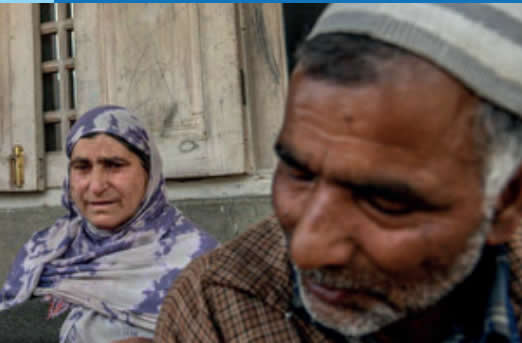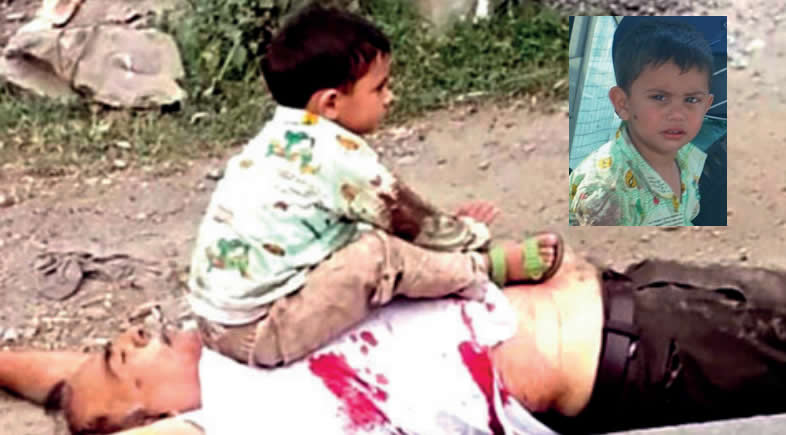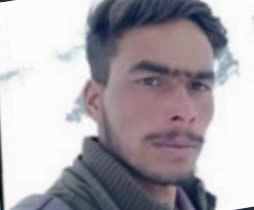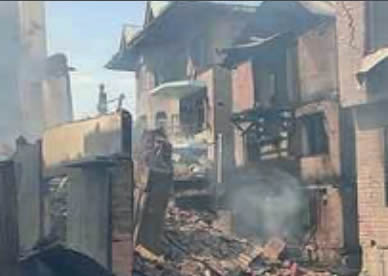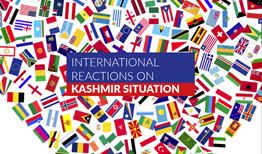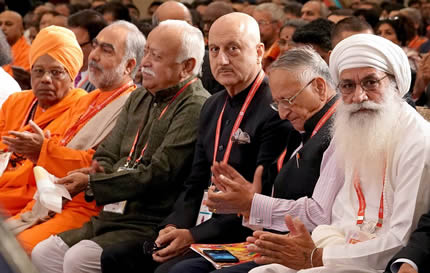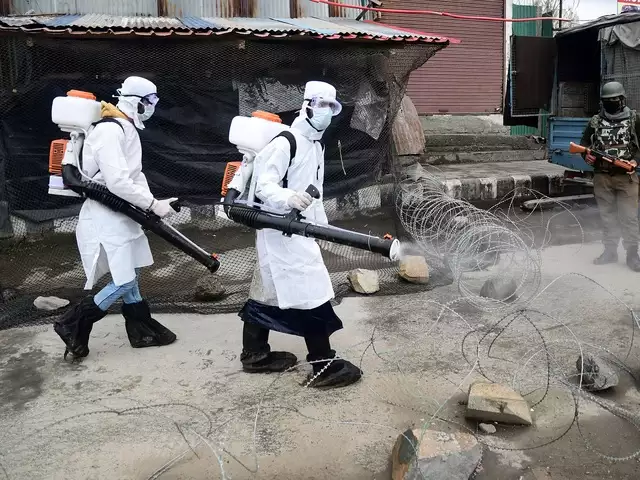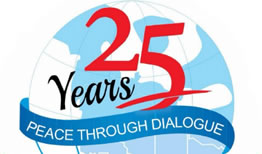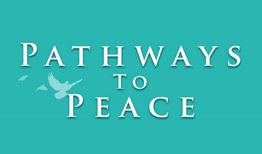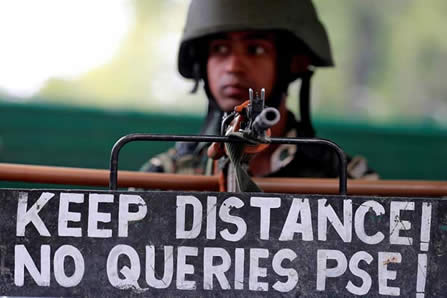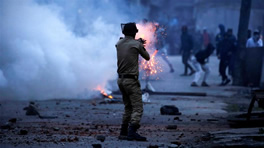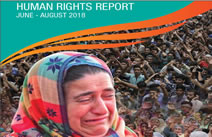INTERNATIONAL CONCERNS OVER KASHMIR ISSUE
INTERNATIONAL CONCERNS OVER KASHMIR ISSUE
INTRODUCTION
The following document presents a comprehensive compilation of international reactions to the issue of human rights violations in Indian occupied Jammu and Kashmir, spanning the period from May 2024 to July 2024. This report aims to provide a consolidated overview of the statements made by prominent personalities and organizations, as well as the extensive coverage provided by leading newspapers and magazines, concerning the grave situation unfolding in this disputed region.
The conflict in Indian occupied Jammu and Kashmir has long been a matter of international concern, stemming from the aspirations of the Kashmiri people for self-determination. Throughout the years, numerous reports and testimonies have shed light on the violation of fundamental human rights and the immense suffering endured by the Kashmiri people. This report endeavours to bring together the voices of influential individuals and organizations that have expressed their concerns regarding the human rights situation in Indian occupied Jammu and Kashmir. It incorporates coverage of international the media outlets including prominent newspapers and magazines, offering a comprehensive overview of the prevailing discourse surrounding the ongoing crisis.
By compiling these international reactions and media coverage into a single document, we seek to underscore the urgent need for international attention and action in addressing the human rights abuses occurring in Indian occupied Jammu and Kashmir. Through highlighting the perspectives of those who have spoken out against these violations, we aim to emphasize the pressing nature of the situation and advocate for the resolution of the Kashmir issue in a manner that upholds the rights and aspirations of the Kashmiri people. It is our sincere hope that this report will contribute to raising awareness about the challenges faced by the Kashmiri people and foster informed discussions among stakeholders and decision- makers. By comprehending the gravity of the human rights situation, we can collectively work towards promoting peace, justice, and the realization of the legitimate right to self-determination for the people of Indian occupied Jammu and Kashmir.
We encourage readers to thoroughly review the findings of this report, engage in constructive dialogue, and explore opportunities to support initiatives aimed at finding a just and lasting resolution to the Kashmir conflict. Together, we can strive for a future where human rights are upheld, and the aspirations of all communities in Indian occupied Jammu and Kashmir are respected. Please note that this report represents a compilation of various sources and does not necessarily reflect the views or opinions of any specific individual or organization.
UN HUMAN RIGHTS COMMITTEE PUBLISHES FINDINGS ON CROATIA, HONDURAS, INDIA, MALDIVES, MALTA, SURINAME, AND SYRIA
GENEVA - The UN Human Rights Committee today issued its findings on Croatia, Honduras, India, Maldives, Malta, Suriname, and the Syrian Arab Republic after examining the seven States parties in its latest session. The findings contain the Committee’s main concerns and recommendations on the implementation of the International Covenant on Civil and Political Rights, as well as positive aspects. Highlights include:
The Committee was concerned that some provisions of the Armed Forces (Special Powers) Acts and counter-terrorism legislation are not in compliance with the Covenant. The Committee also voiced its concern over the application of counter-terrorism legislation for decades in “disturbed areas”, such as districts in Manipur, Jammu and Kashmir and Assam, has led to widespread and grave human rights violations, including excessive use of force leading to unlawful killings, prolonged arbitrary detention, sexual violence, forced displacement and torture. It urged India to comply with its obligations under the Covenant and to ensure that counter-terrorism and other security measures in disturbed areas are temporary, proportionate, strictly necessary and subject to judicial review. It also asked India to establish a mechanism to initiate a process to acknowledge responsibility and ascertain the truth regarding human rights violations in disturbed areas.
INDIA: GROWING CONCERNS ON THE MISUSE OF FINANCIAL ACTION TASK FORCE STANDARDS TO TARGET CIVIL SOCIETY
Amnesty International and Front Line Defenders are gravely concerned about the growing instances of misuse of counterterrorism laws in India to target civil society actors. Ahead of the sixth Financial Action Task Force (FATF) Plenary when the FATF Member States, Secretariat and leadership are meeting to review India’s Mutual Evaluation Report (MER), we urge them to consider civil society concerns and remind the Indian government of their commitment to comply with FATF’s recommendations without misusing its standards. On 14 June 2024, Delhi’s Lieutenant Governor sanctioned the prosecution of Arundhati Roy, a celebrated writer and winner of the Booker Prize and Sheikh Showkat Hussain, a Kashmiri academic under India’s stringent counter-terrorism law – the Unlawful Activities (Prevention) Act (UAPA) for a speech made in 2010.1
In her speech, Roy had highlighted the growing human rights violations in Kashmir, a region whose special autonomy was unilaterally revoked by the Government of India in August 2019 amidst a communication blackout and detention of activists, students, journalists and members of political opposition groups. The Government’s decision to prosecute Roy and Hussain after 14 years highlights the broader pattern of arbitrarily targeting government critics using draconian laws. Their case is one among many such examples of misuse of UAPA.
The weaponization of the UAPA to target human rights defenders and stifle critical voices in India has exponentially increased in the last 10 years. The draconian provisions under the UAPA such as high thresholds for granting bail, long incarceration without charge, and reversal of the presumption of innocence resulting in a burden of innocence being put on the accused persons, are often invoked to create a chilling effect within the civil society. India’s counter-terrorism laws have expanded over time to become increasingly overbroad and have often overturned basic procedural safeguards for defendants...
THE STATE OF THE WORLD’S HUMAN RIGHTS
National financial and investigation agencies were weaponized against civil society, human rights defenders, activists, journalists and critics, further shrinking civic space. Government officials, political leaders, and supporters of the Bharatiya Janata Party (BJP) – the ruling political party at the federal level – advocated hatred and violence against religious minorities with impunity, particularly Muslims, marking a rise in hate crimes. Punitive demolitions of largely Muslim properties – including homes, businesses and places of worship – resulting in mass forced evictions after episodes of communal violence, were commonplace and went unpunished. India continued to impose arbitrary and blanket internet restrictions including internet shutdowns.
The government withheld the Twitter (now known as X) accounts of journalists and civil society organizations without due process. Dalits, Adivasis and other marginalized groups continued to face violence and entrenched discrimination, with women and girls facing specific attacks on their right to bodily autonomy. Despite a formal ban on manual scavenging, more than 300 people had died cleaning sewers and septic tanks Since 2018.
LAW AS AN INSTRUMENT OF OPPRESSION: UAPA
The Unlawful Activities Prevention Act is an act that the government of India has instituted to “prevent terror-related activities, unlawful associations, and activities that may endanger the sovereignty and integrity of India.” A person can be labeled a terrorist if he conducts or participates in terrorist activities, prepares for terrorism, supports terrorism, or is otherwise involved in terrorism.1 It allows the government to jail an individual for six months, without a trial or bail, precluding any judicial intervention.
The UN further has stated that the UAPA has resulted in a “worrisome rise” in the number of arrests in India, and especially in Indian-administered Jammu and Kashmir (J&K). “We regret that the Government continues to use the UAPA as a means of coercion to restrict civil society’s, the media’s and human rights defenders’ fundamental freedoms in Indian-administered Jammu and Kashmir as well as in the rest of the country. We therefore once again urge the Government to bring this legislation in line with India’s international lega obligations under human rights law,” the UN experts have stated. Between 2016 and 2019, among the 5,922 persons charged under this law across India, people from Jammu and Kashmir constitute 15 percent (876) though the conviction rate remains little over 2 percent.
Jammu and Kashmir registered the highest number of cases filed under the UAPA, according to 2020 data, the latest available, put out by the National Crime Records Bureau (NCRB) in 2021.5 Police have booked more than 2,364 people under UAPA since 2019 and nearly half of them are still languishing in jail inside and outside the Kashmir valley.6 The rate of detentions is only growing exponentially.
INDIA: SIX-POINT HUMAN RIGHTS CHARTER FOR THE NEW GOVERNMENT
With this human rights charter, Amnesty International urges the newly formed National Democratic Alliance (NDA) -led Indian government to ensure that the protection and promotion of human rights is kept at the centre of all its policies and decisions for the next five years. With this human rights charter, Amnesty International urges the newly formed National Democratic Alliance (NDA) - led Indian government to ensure that the protection and promotion of human rights is kept at the centre of all its policies and decisions for the next five years.
Since 2014, Amnesty International has documented a pattern of escalating human rights violations. These include adopting laws and policies without adequate public or legislative consultation that systematically discriminate against religious minorities; rising advocacy of hatred and violence by the leaders of Bharatiya Janata Party (BJP) – India’s ruling party at the federal level between 2014 and 2024 - and ideologically affiliated Hindu supremacist groups; normalizing violence and encouraging threats, harassment, and attacks on minority religious communities; summarily punishing those peacefully protesting such abuses, along with their families as a form of collective punishment, including by violating their rights to education, employment, housing, and violations of their freedom of expression, religion, association and non-discrimination; gradual
allegedly currying favours with Muslim voters. Other BJP political leaders also consistently called on the voters to choose BJP so as to allow the party a free hand to amend the Indian Constitution to suit its majoritarian interests.
NDIA: REPRESSION PERSISTS IN JAMMU AND KASHMIR
(London) – The Indian government has not restored freedom of speech and association to Jammu and Kashmir five years after revoking the region’s special autonomous status on August 5, 2019, Human Rights Watch said today. The Indian security forces continue to carry out repressive policies including arbitrary detention, extrajudicial killings, and other serious abuses. Indian authorities seek to justify abuses by contending that political violence in the region has declined considerably in the past five years, with fewer civilian and security personnel casualties.
A recent surge in violence in the Jammu region since June has led to the death of 15 soldiers and 9 civilians. “Indian authorities insist that violence has been contained in Jammu and Kashmir, but in five years they have done little to end the government assault on fundamental freedoms,” said Meenakshi Ganguly, deputy Asia director at Human Rights Watch. “Kashmiris are unable to exercise their right to free expression, association, and peaceful assembly because they fear they will be arrested, thrown in prison without trial for months, even years.” In March 2024, demonstrators in the now separate territory of Ladakh demanded a greater participation and role in how their territory is governed. Since 2019, religious minorities and migrant workers have faced targeted attacks while hundreds of Kashmiris, including journalists and human rights activists, remain in custody under draconian detention and counterterrorism laws.
“It might seem calm with all the tourists, late night shopping, and other overt signs of normalcy, but we are festering inside,” said a 27-year-old Kashmiri businessman. “It is like a soda bottle waiting to burst.” The authorities have continued to prosecute prominent civil society activists on apparently politically motivated charges. On July 10, authorities arrested Nazir Ahmad Ronga, the chairman of Jammu and Kashmir’s High Court Bar Association under the Public Safety Act. In June, they arrested Mian Abdul Qayoom, former president of the association and a vocal critic of government rights abuses, accusing him of murder. Within days, the local administration allegedly banned elections in the bar association.
FCDO ADVISES AGAINST ALL TRAVEL TO PARTS OF INDIA.
FCDO advises against all travel to the region of Jammu and Kashmir (including Pahalgam, Gulmarg, Sonamarg, the city of Srinagar, and the Jammu-Srinagar national highway), except for:
• travel by air to and from the city of Jammu
• travel within the city of Jammu
• travel within the region of Ladakh
There have been frequent terrorist incidents in Jammu and Kashmir. There is a continuing threat, mainly towards the targets of the Government of India.
There is a heavy security presence in the Kashmir Valley. This, combined with violent protests and operations by security forces, has resulted in several deaths and serious casualties. Curfews and other restrictions can be imposed and lifted frequently and quickly. Stay vigilant, monitor local media, and follow the advice of local authorities and your travel company. Foreigners are vulnerable in rural districts and outside the main population centers and tourist areas. There is a risk of unpredictable violence, including bombings, grenade attacks, shootings, and kidnappings. The long-standing policy of the UK government is not to make substantive concessions to hostage-takers. The level of consular assistance that the British High Commission in India can provide in Jammu and Kashmir is severely limited.
Country Summary: Indian authorities report that rape is one of the fastest growing crimes in India. Violent crime, such as sexual assault, has happened at tourist sites and other locations. Terrorists may attack with little or no warning. They target tourist locations, transportation hubs, markets/shopping malls, and government facilities. The U.S. government has limited ability to provide emergency services to U.S. citizens in rural areas. These areas stretch fromeastern Maharashtra and northern Telangana through western West Bengal. U.S. government employees must get special authorization to travel to these areas.
If you decide to travel to India:
• Do not travel alone, particularly if you are a woman. Visit our website for Women Travelers.
• Review your personal security plans and remain alert to your surroundings.
• Enroll in the Smart Traveler Enrollment Program (STEP) to receive Alerts and make it easier to locate you in an emergency.
• Follow the Department of State on Facebook and Twitter.
• Review the Country Security Report for India.
• Prepare a contingency plan for emergency situations. Review the Traveler’s Checklist. Union Territory of Jammu and Kashmir – Level 4: Do Not Travel Terrorist attacks and violent civil unrest are possible in the union territory of Jammu and Kashmir. Do not travel to this state (with the exception of visits to the eastern Ladakh region and its capital, Leh). Violence happens sporadically in this area and is common along the Line of Control (LOC) between India and Pakistan. It also occurs in tourist spots in the Kashmir Valley: Srinagar, Gulmarg, and Pahalgam. The Indian government does not allow foreign tourists to visit certain areas along the LOC.
WHY ARE KASHMIRIS VOTING IN INDIAN ELECTION THEY’VE LONG BOYCOTTED?
Haroon Khan huddled with his friends on the lawn of a polling station in the heart of Nowhatta, a part of the city of Srinagar that is known for its anti-India sentiments. Khan had just emerged from a small room after casting his vote in the ongoing parliamentary elections in India. For years, most people in Indian-administered Kashmir have boycotted elections, which many here have seen as attempts by New Delhi to legitimise – using democracy – its control over a region that has been a hotbed of armed rebellion against India since 1989. Re be larmed groups and separatist leaders have routinely issued boycott calls ahead of every election.
Yet, as India votes in its national elections, that voting pattern is changing. Five years after the government of Prime Minister Narendra Modi revoked the special status of Jammu and Kashmir, abolished its statehood, and brought it under the direct control of New Delhi, 21-year-old Khan and his friends outside the polling booth chose a new form of protest: voting. “We have not achieved anything from boycotts or choosing other means [stone pelting] of protests to express our dissent,” Khan said. “Many of my friends, neighbours are languishing in jails for years now, nobody cares for them.” Khan is not alone.
The Muslim-majority Kashmir Valley’s three seats in the lower house of India’s parliament, the Lok Sabha, have been given three different dates for voting in the elections. Srinagar, the only city that has voted so far – on May 13 – saw a 38 percent turnout for the region. That’s the highest voting percentage since 1989. The figure stood at 14.43 percent in the last elections in 2019. That is no endorsement of India or its policies, say voters and local politicians. Instead, they say, it is...
‘VOTE AGAINST JAIL’: HOW TWO MODI CRITICS WON INDIA ELECTION FROM PRISON
In Kashmir and Punjab, candidates jailed for being alleged national security threats have won. What does that say? On the afternoon of June 4, a crowd of several hundred young men gathered in front of a two-storey house in Mawar village, with a clear view of the Pir Panjal mountains in the background, in Indian-administered Kashmir’s Kupwara district. Some of those in the crowd raised a man over their shoulders who shouted, “Tihar ka jawab [the answer to Tihar jail]”, to which the crowd replied, “Vote se [the vote],” as women peeked through windows and children scaled the brick boundary wall around the house for a glimpse of the action.The crowd was celebrating the victory of jailed engineer-turned-politician Abdul Rashid Sheikh, also known as “Engineer Rashid,” who won the Baramulla seat in Kashmir, securing nearly half a million votes
He defeated candidates from both major pro-India political parties in the disputed region – former Jammu and Kashmir Chief Minister Omar Abdullah of the National Conference, and Sajjad Gani Lone, a separatist turned mainstream politician from the Jammu and Kashmir People’s Conference. An independent candidate beating opponents from major parties is rare enough – only seven of the 543 candidates elected winners in India’s just-concluded national vote ran as independents. But Rashid did something ever rarer: he contested and won from Delhi’s Tihar jail, which is approximately 850km (528 miles) away. Te 58-year-old politician was arrested after New Delhi scrapped Kashmir’s special status and statehood on August 5, 2019.
He faces charges of “terror funding” under the Unlawful Activities (Prevention) Act, an anti-terror law declared “draconian” by several rights groups. India’s National Investigation Agency (NIA) charged Rashid in March 2022 with allegedly instigating Jammu and Kashmir police personnel against the Indian Army. He was also accused of receiving funds from Pakistan. He has denied the charges. Rashid is not alone. Some 485km (300 miles) away in Khadoor Sahib in the northwestern state of Punjab, voters elected 31-year-old Amritpal Singh, who has advocated for a separate Sikh homeland, to parliament. Singh, like Rashid, contested from jail – in his case, a high-security prison in Assam, in the northeast corner of India. Singh, who is facing 12 criminal charges, was arrested by the Punjab police in April 2023 and charged under the National Security Act (NSA)
INDIA SAYS NOVELIST ARUNDHATI ROY COULD BE TRIED UNDER ANTI-TERRORISM LAW
Roy could face grave charges over comments she made 14 years ago about Kashmir under a stringent anti-terrorism law. NEW DELHI — The Indian novelist Arundhati Roy could face serious charges over comments she made 14 years ago about Kashmir after an official from the ruling Bharatiya Janata Party on Friday authorized her prosecution under a stringent anti-terrorism law. The decision to invoke India’s controversial terrorism provision against one of the ruling party’s most outspoken — and internationally renowned — critics comes just days after Prime Minister Narendra Modi was sworn in for a third term, and it has been widely viewed as a signal of strength emanating from Modi’s camp.
Although Modi was forced this week to form a new coalition government after a shock election result on June 4 reduced his seat count in Parliament, the Indian leader has projected an image of confidence as he kept his cabinet unchanged in key positions and vowed to double down in his fight against his political opponents, whom he called corrupt. The office of V.K. Saxena, the BJP lieutenant governor of New Delhi who sanctioned Roy’s anti-terrorism case, said investigative agencies had sought the use of the Unlawful Activities (Prevention) Act in Roy’s case and Saxena approved the request. It did not offer further comment. But several BJP spokespeople defended the move and portrayed Roy as a traitor backed by the opposition Congress party.
On a prime-time debate show, BJP national spokesman Tuhin Sinha accused Roy of seeking to demoralize the Indian Army. Another BJP spokesman, Shehzad Poonawalla, compared the writer to convicted terrorists, in a video statement published on X. “Arundhati Roy said that Kashmir is not an integral part of India when the Congress was in power,” Poonawalla said in his post Saturday. “Congress and its ecosystem support people who want to break India into many pieces.” Roy, 62, first faced a criminal complaint after she told an audience at a conference in New Delhi that Kashmir was never part of India before it came under occupation by Indian troops. Roy’s comments sparked immediate protests by BJP supporters, but the criminal case faded away. It was resurrected 13 years later, in October, when Saxena sanctioned her prosecution on charges of promoting enmity between groups and threatening India’s national integrity. On Friday, Saxena allowed the case to be escalated by announcing that Roy could be prosecuted under..
WILL INDIA’S BOOKER PRIZE-WINNING AUTHOR FACE JAIL FOR 14-YEAR-OLD REMARK?
Will one of India’s most celebrated writers really face prosecution for things she said more than a decade ago? Last week, 14 years after the original complaint, Delhi’s most senior official granted permission for the Booker Prize-winning author Arundhati Roy to be prosecuted under India’s stringent anti-terror laws. The Unlawful Activities (Prevention) Act (UAPA) is notorious for making it exceptionally challenging to get bail, often resulting in years of detention until the completion of trial.
The Modi government has been accused of using the law to silence critics, including activists, journalists and civil society members. Ms Roy, 62, an outspoken writer and activist, is in the dock for comments on Kashmir, a perennial lightning rod in India. “Kashmir has never been an integral part of India. It is a historical fact. Even the Indian government has accepted this,” she said at a stormy, day-long conference in Delhi, organised by the Committee for the Release of Political Prisoners, in October 2010. At the time, Indian-administered Kashmir was in turmoil, with locals describing it as a fierce uprising against India.
Ms Roy’s remarks had followed the deaths of dozens of protesters since fresh pro-freedom demonstrations broke out earlier that year. India and neighbouring Pakistan, nuclear armed-rivals, claim the disputed region in full and have fought two wars over it. Ms Roy’s remarks predictably set off a firestorm of protest, with many critics questioning her loyalty to India, and the federal government, then led by the Congress party, threatening to arrest her on charges of sedition. A senior minister said while India enjoyed freedom of speech, “it can’t violate the patriotic sentiments of the people”.
There were protests outside Ms Roy’s home in an upscale Delhi neighbourhood. A criminal complaint was lodged against her and another defendant Sheikh Showkat Hussain, a law teacher from Kashmir, accusing them and two others of sedition. Ms Roy defended her right to free speech soon after the controversy. “In the papers some have accused me of giving ‘hate-speeches’, of wanting India to break up. On the contrary, what I say comes from love and pride,” she wrote in a response. “It comes from not wanting people to be killed, raped, imprisoned or have their finger-nails pulled out in order to..
OPEN LETTER IN INDIA CALLS FOR WITHDRAWAL OF GO-AHEAD TO PROSECUTE ARUNDHATI ROY
Over 200 signatories urge government to reverse decision enabling action against writer under anti-terrorism law More than 200 Indian academics, activists and journalists have published an open letter urging the Indian government to withdraw last week’s decision sanctioning the prosecution of the Booker prize-winning author Arundhati Roy under the country’s stringent anti-terrorism law. “We … deplore this action and appeal to the government and the democratic forces in the country to ensure that no infringement of the fundamental right to freely and fearlessly express views on any subject takes place in our nation,” the group said in the letter.
One of the signatories, the history professor Ajay Dandekar, said the decision was unjustified. “The Indian constitution upholds Roy’s right to the freedom of her opinions and we are a constitutional democracy,” he said. Others also voiced support for Roy, including the Samyukt Kisan Morcha, an umbrella group of farmer unions, which condemned the decision. A few protests by civil rights groups, activists, and students in Delhi and Bengaluru have also taken place. Last week the lieutenant governor of Delhi, Vinai Kumar Saxena, gave the go-ahead to the police to prosecute Roy, along with the academic Sheikh Showkat Hussain, under the anti-terrorism law, known as the Unlawful Activities Prevention Act (UAPA), for remarks they made at a seminar in 2010.
Ever since Roy’s literary success in 1997, when she won the Booker prize for her debut novel The God of Small Things, she has been a sharp critic not only of Narendra Modi’s government but of previous governments too. She has attracted praise and censure in equal measure for her critiques of capitalism, the treatment of minorities, and globalisation, as well as her support for human rights causes. However, the decision to prosecute her under the law, which makes bail difficult and results in people spending long years in prison awaiting trial, has shocked some Indians. “Are we a democratic country or not?” asked Mukta Manohar, the general secretary of the Pune municipality Safai union, one of the signatories. “We signed the letter because we have to uphold our constitutional right to disagree with the government. We can’t let the government take revenge against critics
INDIA: GROWING CONCERNS ON THE MISUSE OF FINANCIAL ACTION TASK FORCE STANDARDS TO TARGET CIVIL SOCIETY
Amnesty International and Front Line Defenders are gravely concerned about the growing instances of misuse of counter-terrorism laws in India to target civil society actors. Ahead of the sixth Financial Action Task Force (FATF) Plenary when the FATF Member States, Secretariat and leadership are meeting to review India’s Mutual Evaluation Report (MER), we urge them to consider civil society concerns and remind the Indian government of their commitment to comply with FATF’s recommendations without misusing its standards.
On 14 June 2024, Delhi’s Lieutenant Governor sanctioned the prosecution of Arundhati Roy, a celebrated writer and winner of the Booker Prize and Sheikh Showkat Hussain, a Kashmiri academic under India’s stringent counter-terrorism law – the Unlawful Activities (Prevention) Act (UAPA) for a speech made in 2010.[1] In her speech, Roy had highlighted the growing human rights violations in Kashmir, a region whose special autonomy was unilaterally revoked by the Government of India in August 2019 amidst a communication blackout and detention of activists, students, journalists and members of political opposition groups.[2] The Government’s decision to prosecute Roy and Hussain after 14 years highlights the broader pattern of arbitrarily targeting government critics using draconian laws. Their case is one among many such examples of misuse of UAPA.
The weaponization of the UAPA to target human rights defenders and stifle critical voices in India has exponentially increased in the last 10 years. The draconian provisions under the UAPA such as high thresholds for granting bail, long incarceration without charge, and reversal of the presumption of innocence resulting in a burden of innocence being put on the accused persons, are often invoked to create a chilling effect within the civil society. India’s counter- terrorism laws have expanded over time to become increasinglyoverbroad and have often overturned basic procedural safeguards for defendants.
Last year, ahead of India’s MER, civil society groups including Amnesty International submitted reports to the FATF secretariat highlighting the misuse of counter-terrorism laws by Indian authorities to target civil society.[3] These reports reinforce for the Indian case what has been well-documented elsewhere – that the legal and regulatory standards FATF sets for countries to fight terrorist financing risks are easily deployed by governments..
WHY IS ARUNDHATI ROY BEING PROSECUTED FOR A 14-YEAR-OLD SPEECH?
What is a writer, even a world-renowned one, against the political needs of an authoritarian political movement suddenly on its heels? Almost 14 years ago, in 2010, one of India’s most prominent writers — Arundhati Roy — spoke at a public conference in New Delhi. Her subject was the disputed territory of Kashmir and India’s increasingly brutal methods — torture, extrajudicial executions, sexual assaults, imprisonment and the suspension of civil liberties — for keeping in check the restive population of the country’s only Muslim-majority state. Roy, along with four other activists, was forthright on what she saw as India’s appalling record in Kashmir, especially that year, when 118 Kashmiris had been killed by security forces in protests against the government.
For those familiar with Roy, her comments came as no surprise. The author of Booker Prize-winning “The God of Small Things” has long used her prominence to openly critique human rights violations in Kashmir and the Modi government’s policies. Nevertheless, a week after the event, a Kashmiri Hindu activist lodged a complaint with the Delhi police against Roy and other speakers at the conference. The array of charges was extensive and fanciful, running from “challenging the territorial integrity of India” to “disturbing public peace” and “promoting enmity between social groups.” Similar cases were simultaneously filed against Roy in Chandigarh and Bangalore, and India’s rabidly nationalist media arrived outside her home to film the stone-throwing mob that had shown up there.
Nothing further came of the complaint until last October, when V.K. Saxena, the lieutenant governor of Delhi, resurrected the charges and ordered government agencies to move forward with the case. Saxena again resurfaced on June 14 when his office leaked a note to the media declaring that he had asked for Roy to be charged under the Unlawful Activities and Prevention Act. This is the most draconian of India’s arsenal of anti-terrorism laws, a feral and contorted law that amounts to a kind of anti-law. So, why now? The clues lie in the timing. In October, Prime Minister Narendra Modi and his Hindu-nationalist, right-wing Bharatiya Janata Party (BJP) were seeking reelection, hoping for a third term with an absolute majority of 400 seats. This month, they returned to power, but with only 240 seats, forced to rely on other political parties to form a government. The loss of more than 60 seats — despite the suppression of political opponents, complete...
TWO INDIAN SOLDIERS, SIX REBELS KILLED IN KASHMIR GUN BATTLES
Authorities in the disputed territory say they ‘carried out two different operations’ in two villages in Kulgam. Two Indian soldiers have been killed alongside six rebels in two separate gun battles in the Indian-administered Kashmir, according to the police, raising concerns about the security situation in the disputed Himalayan region. Kashmir police’s Inspector General Vidhi Kumar Birdi told the AFP news agency on Sunday that security forces “carried out two different operations” in villages in the Kulgam district in the disputed territory in which two soldiers were killed. Birdi said gunfights continued in Modergram and Frisal Chinnigam villages. “We have retrieved the bodies of two terrorists from Modergram, and four others from Frisal Chinnigam,” said Birdi.
The deadly incident is the latest in an uptick of attacks in the Muslim- majority region, where armed rebellion erupted in the late 1980s against Indian rule. Tens of thousands of people have been killed, although violence has tapered off in recent years. India regularly accuses Pakistan of supporting and arming rebels in the region, a charge Islamabad denies. India and Pakistan both claim the Muslim-majority Himalayan region in full but govern part of it. They have fought three wars for its control. In June, nine Indian Hindu pilgrims were killed and dozens wounded when a gunman opened fire on a bus carrying them from a shrine in the southern Reasi area.
It was one of the deadliest attacks in years and the first on Hindu pilgrims in Kashmir since 2017 when armed men killed seven people in another ambush on a bus. In August 2019, Modi’s Hindu nationalist government stripped Kashmir of its special status, which allowed it a separate constitution and inherited protections on land and jobs under Articles 370 and 35A of the Indian Constitution. The move was followed by an unprecedented months-long security clampdown in one of the world’s most militarised regions, where anti-India sentiment runs high. The government said the move was aimed at ending “terrorism”, but attacks have continued, and further alienated Kashmiris from mainland India. The region has been governed from New Delhi since the special status was scrapped in 2019.
Related Reports
